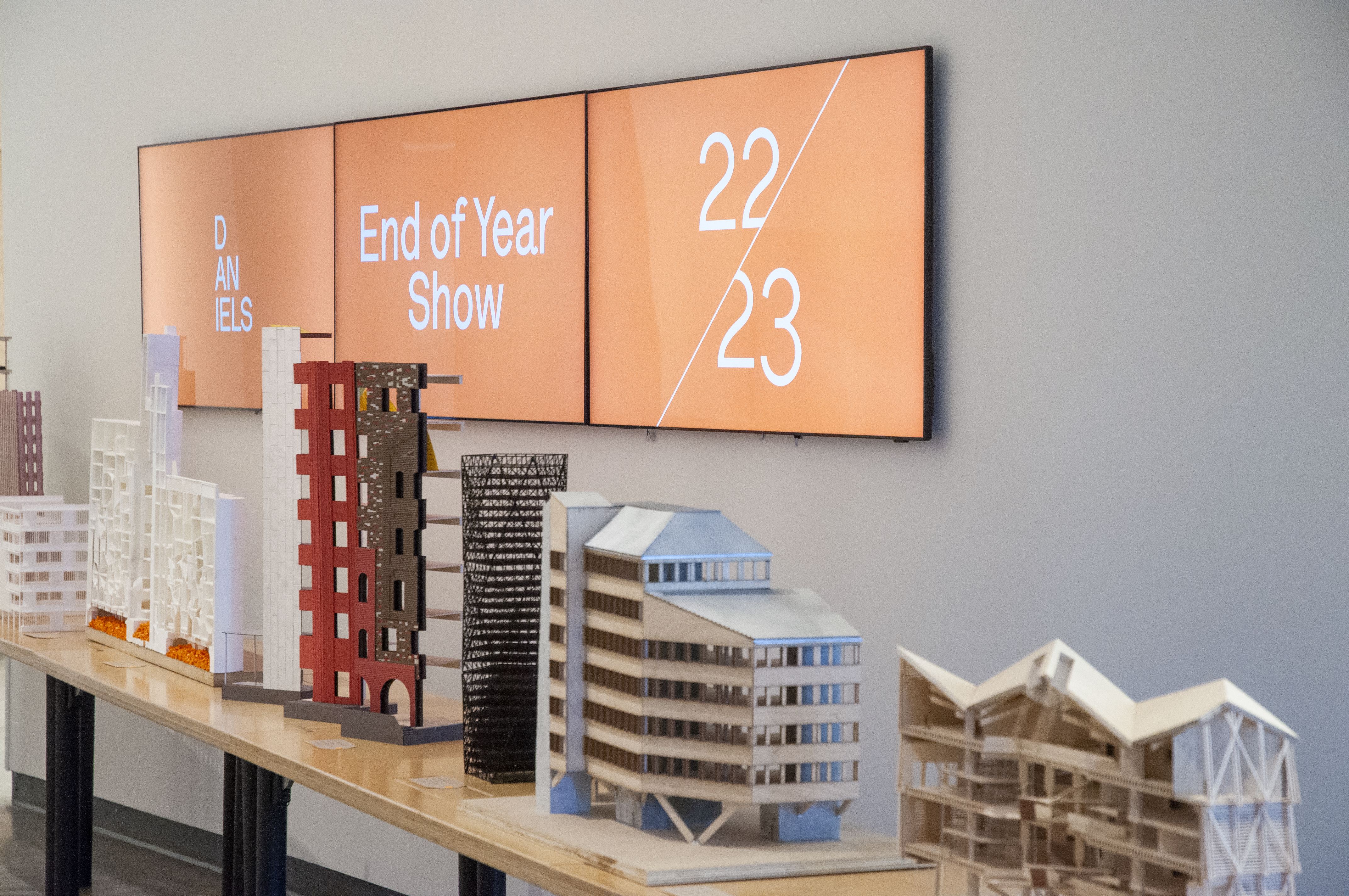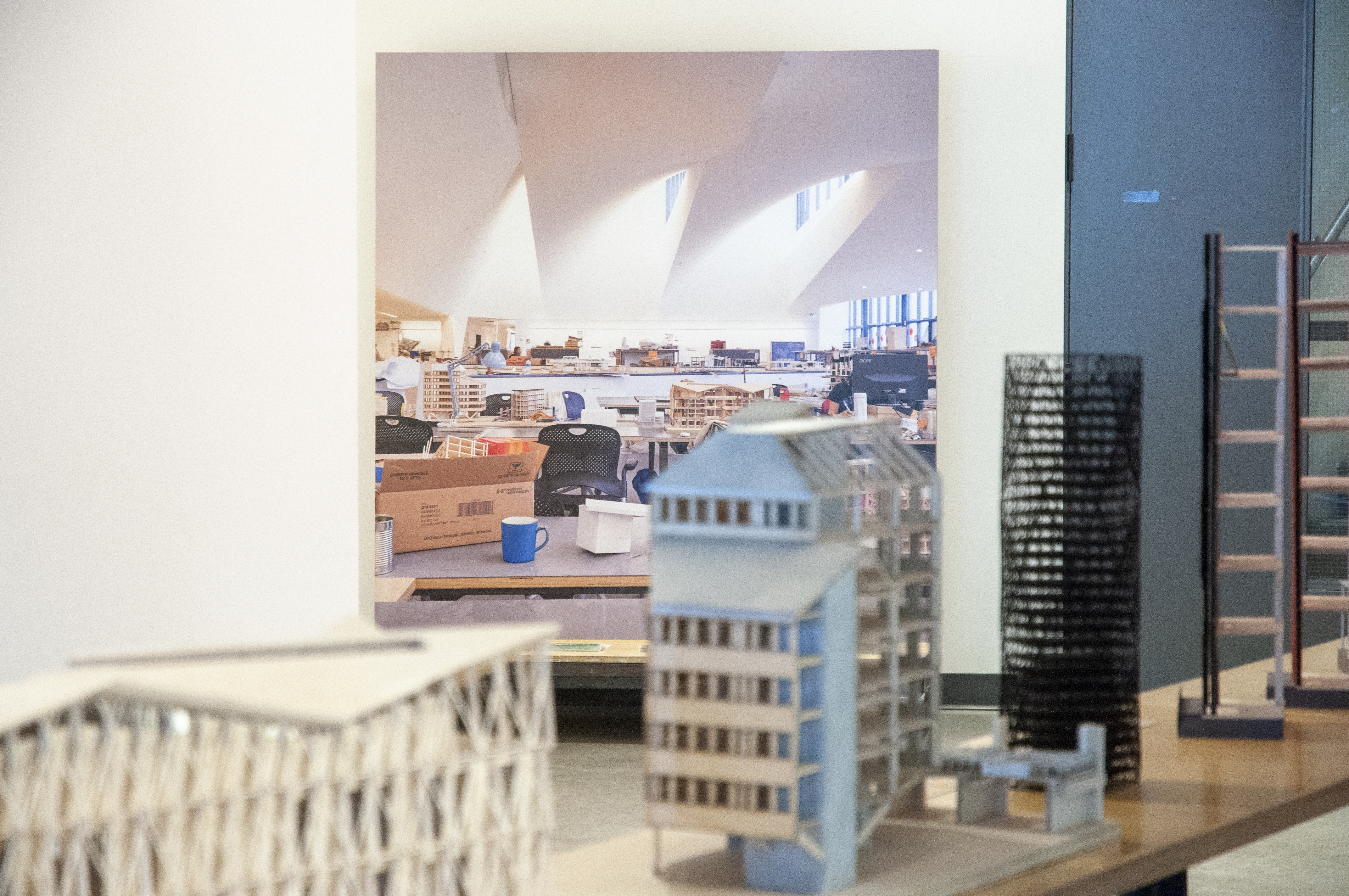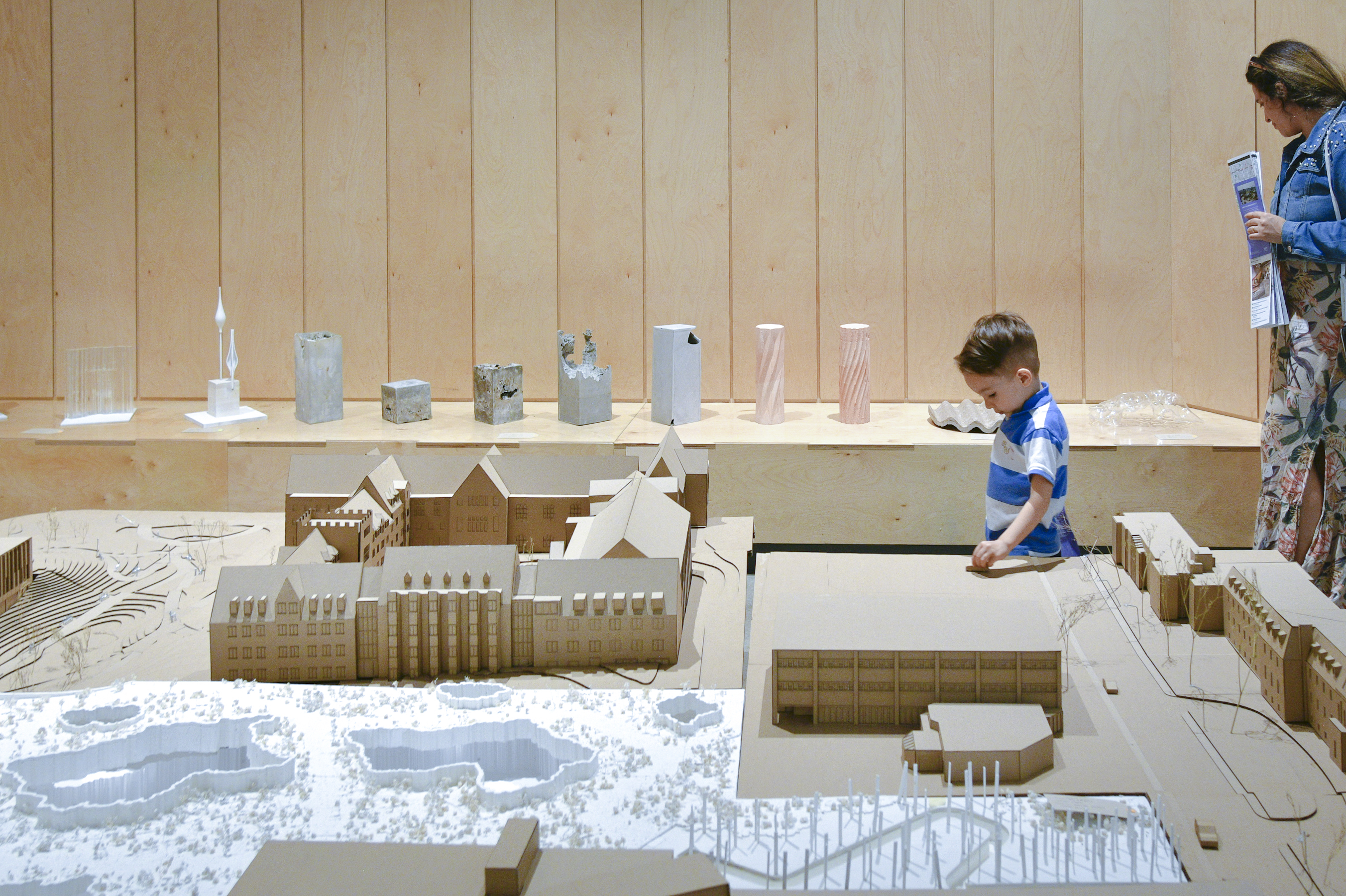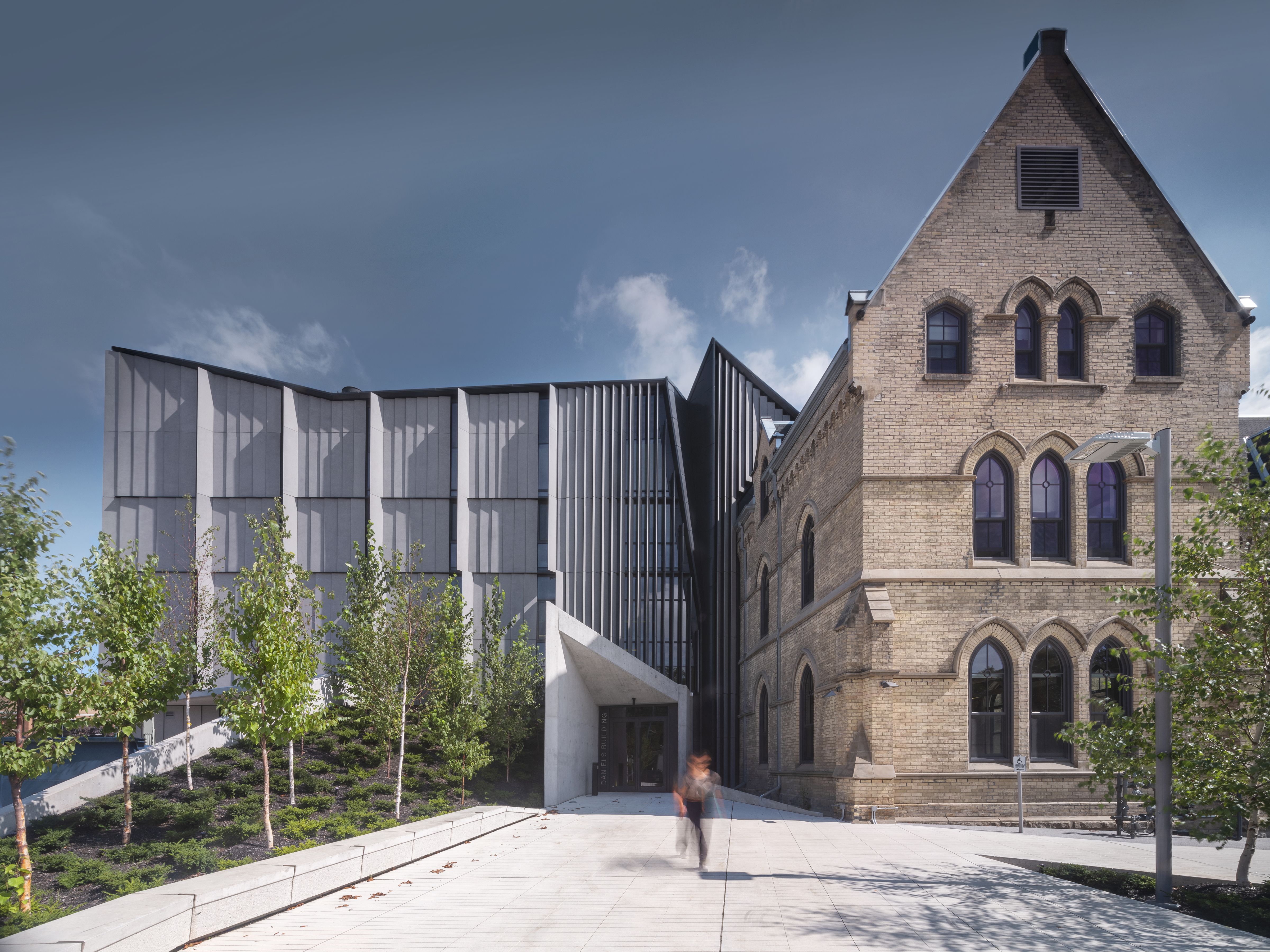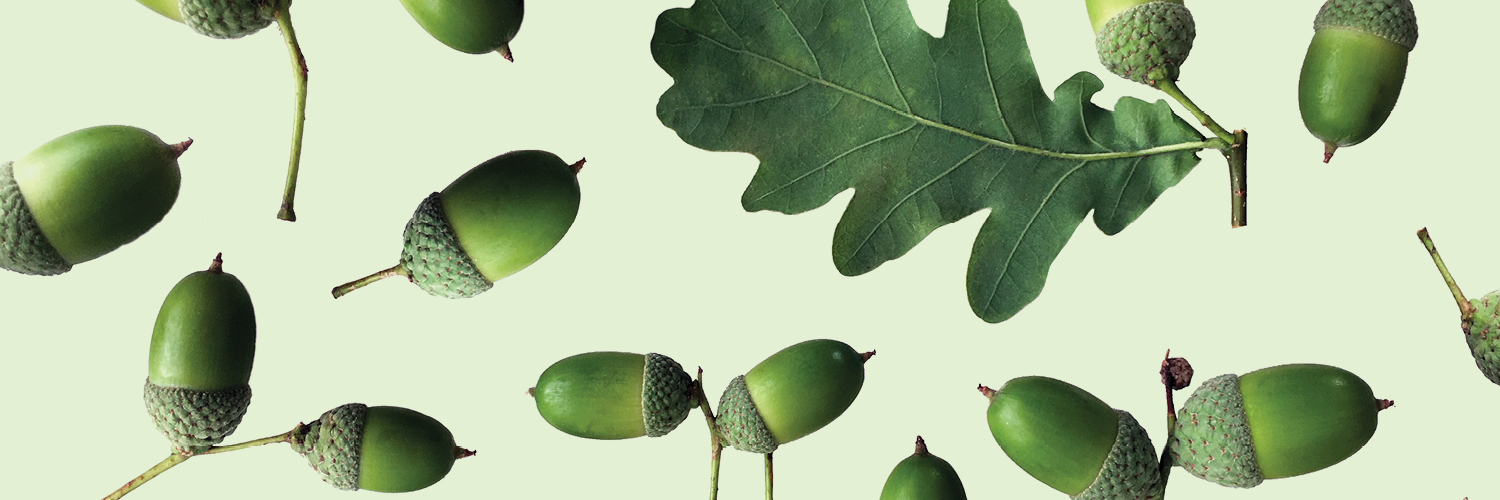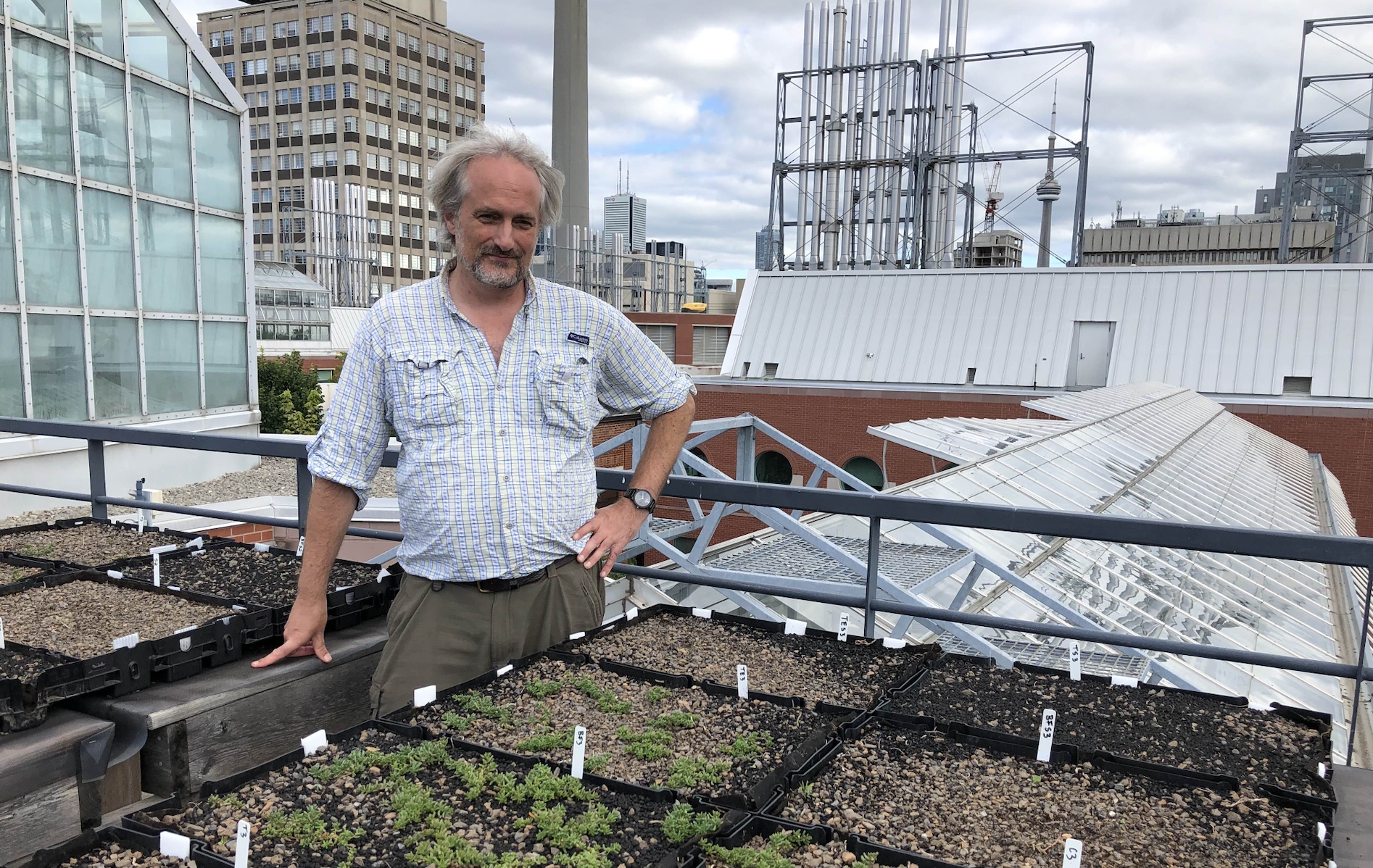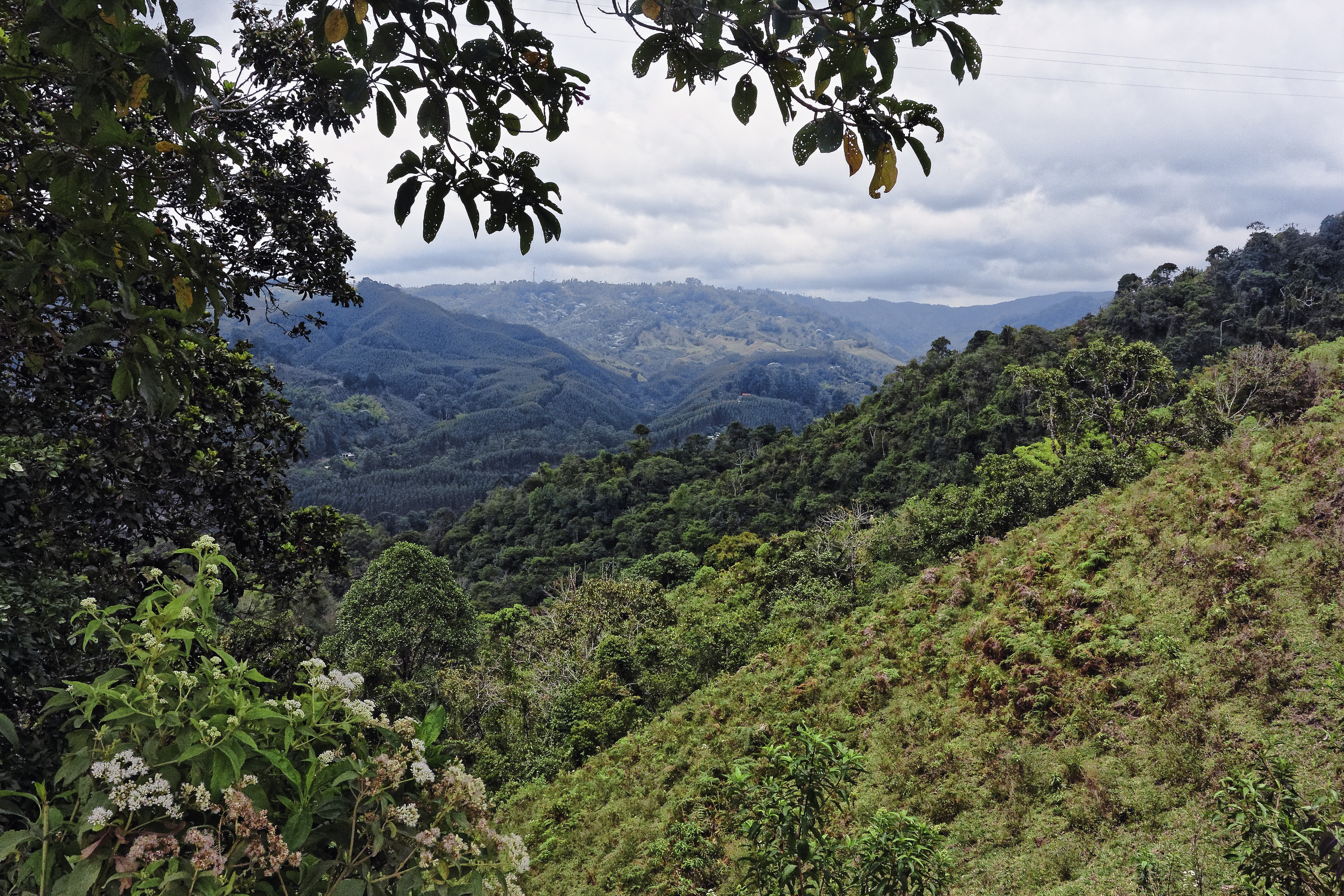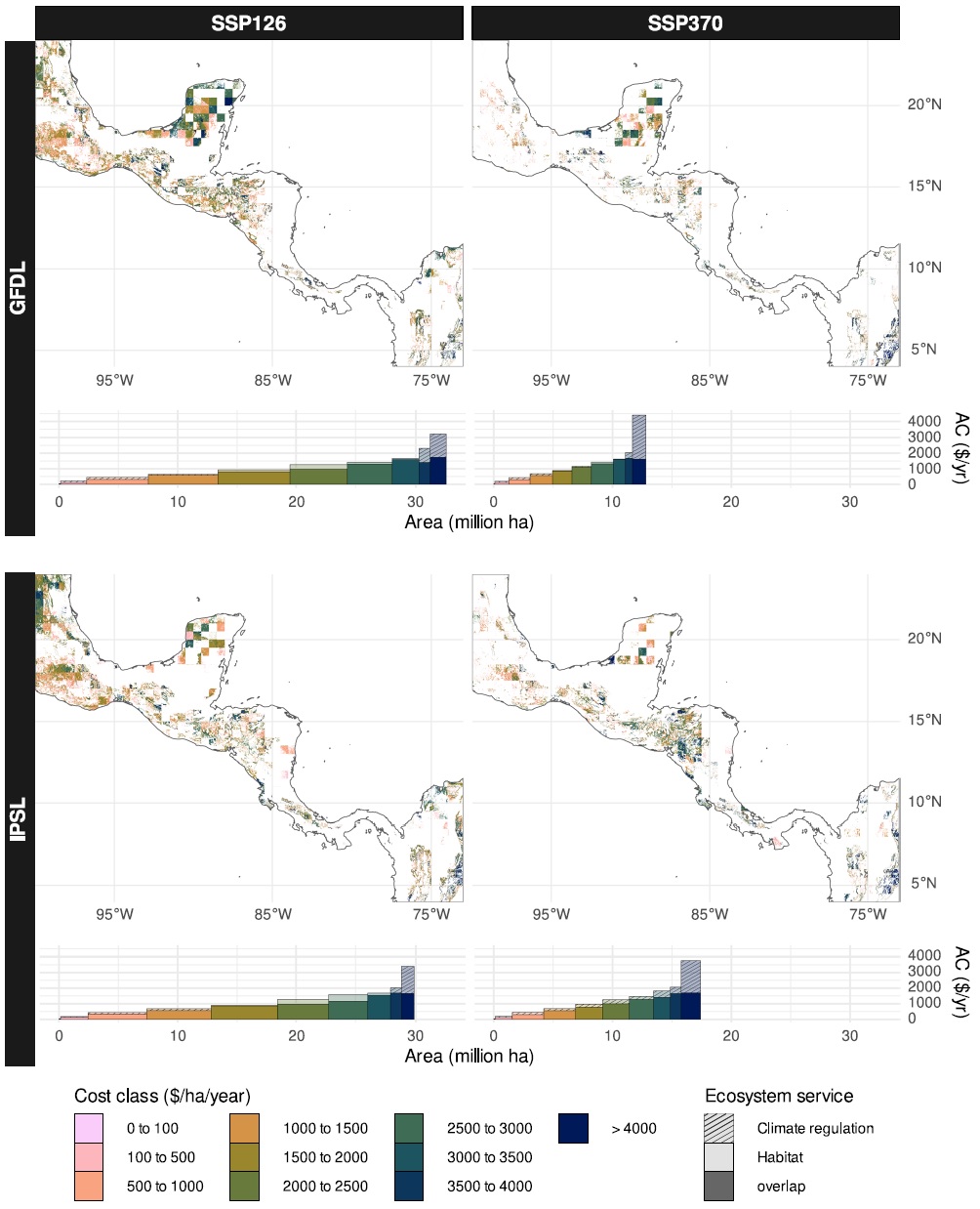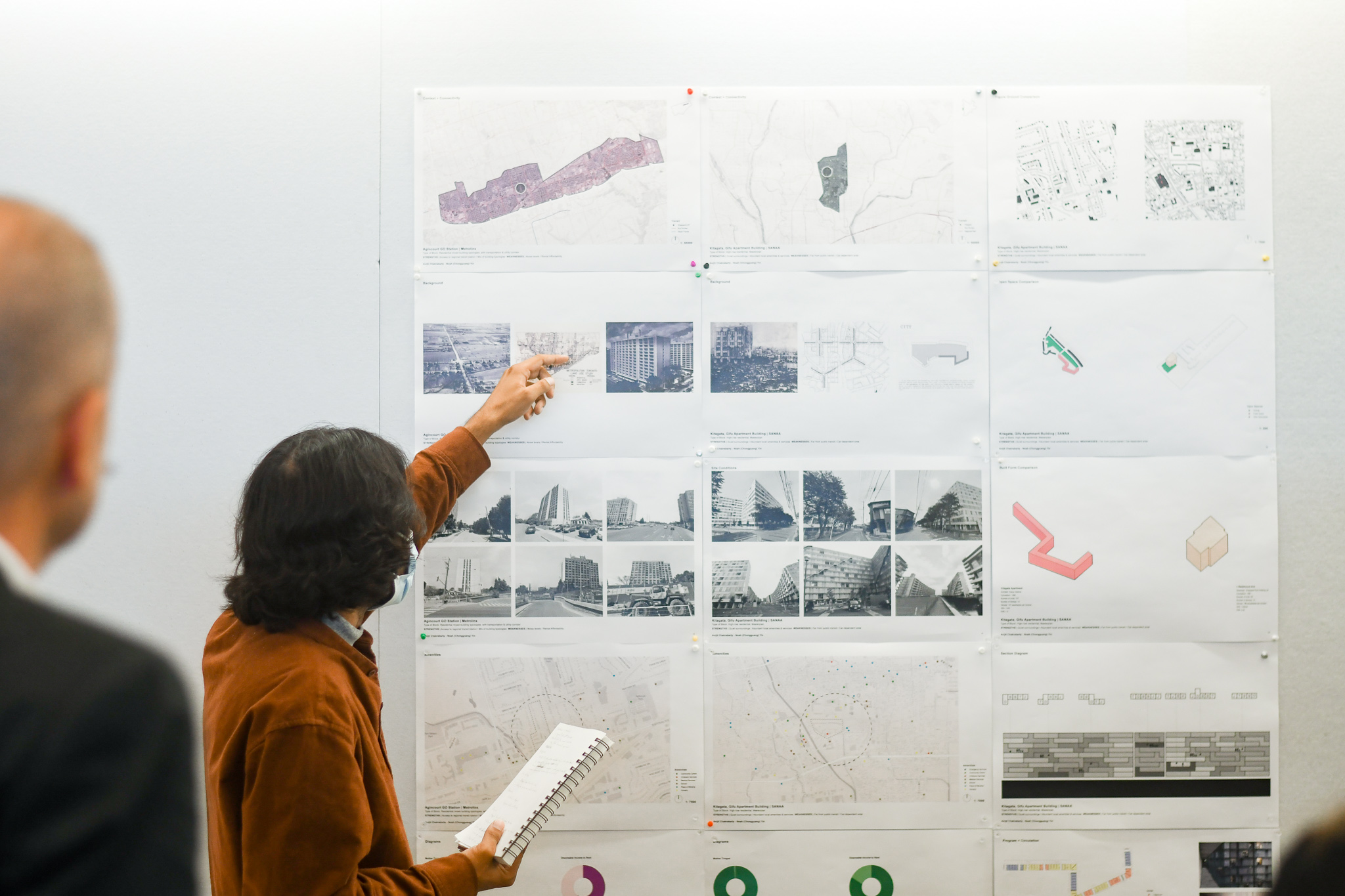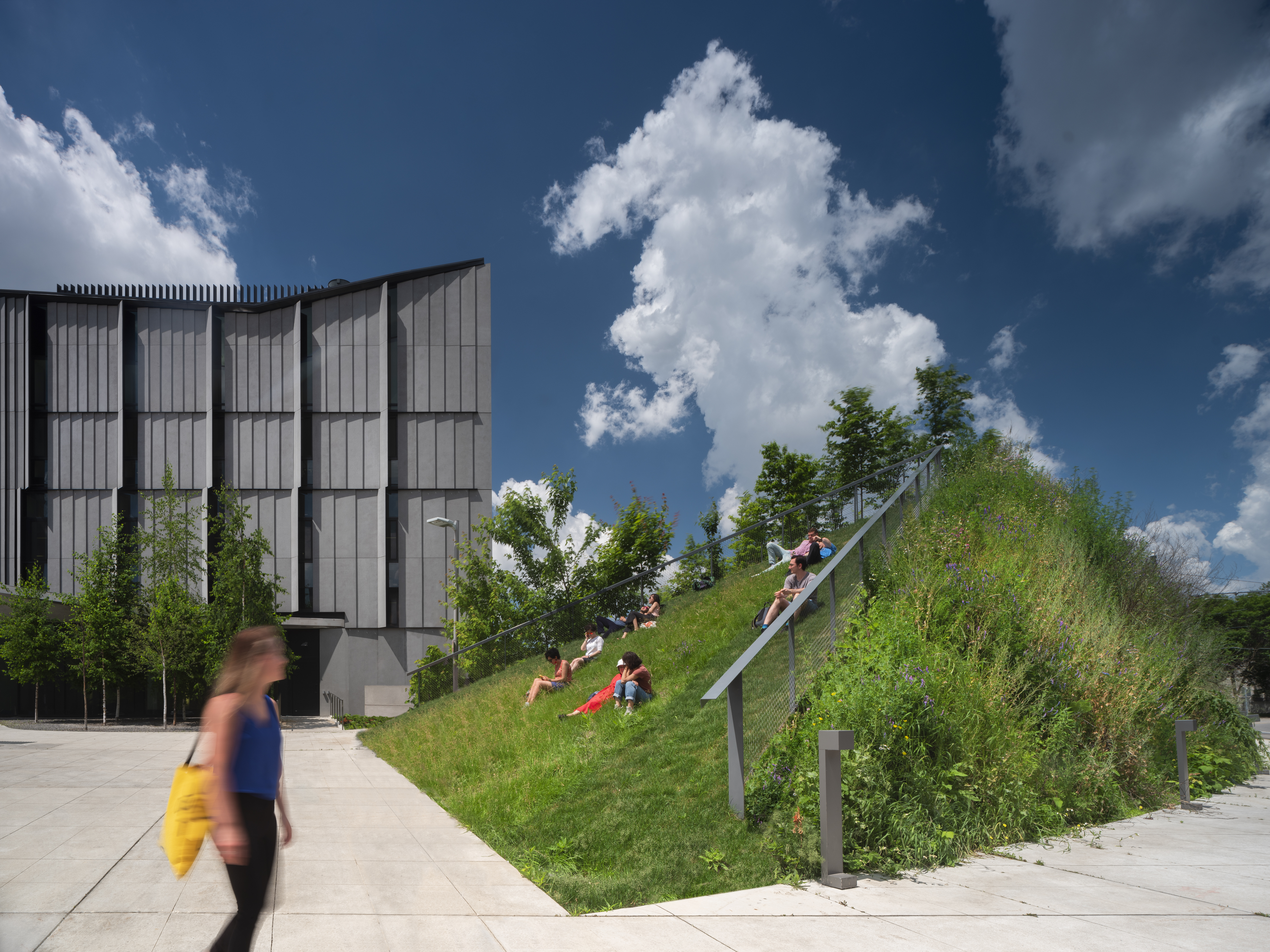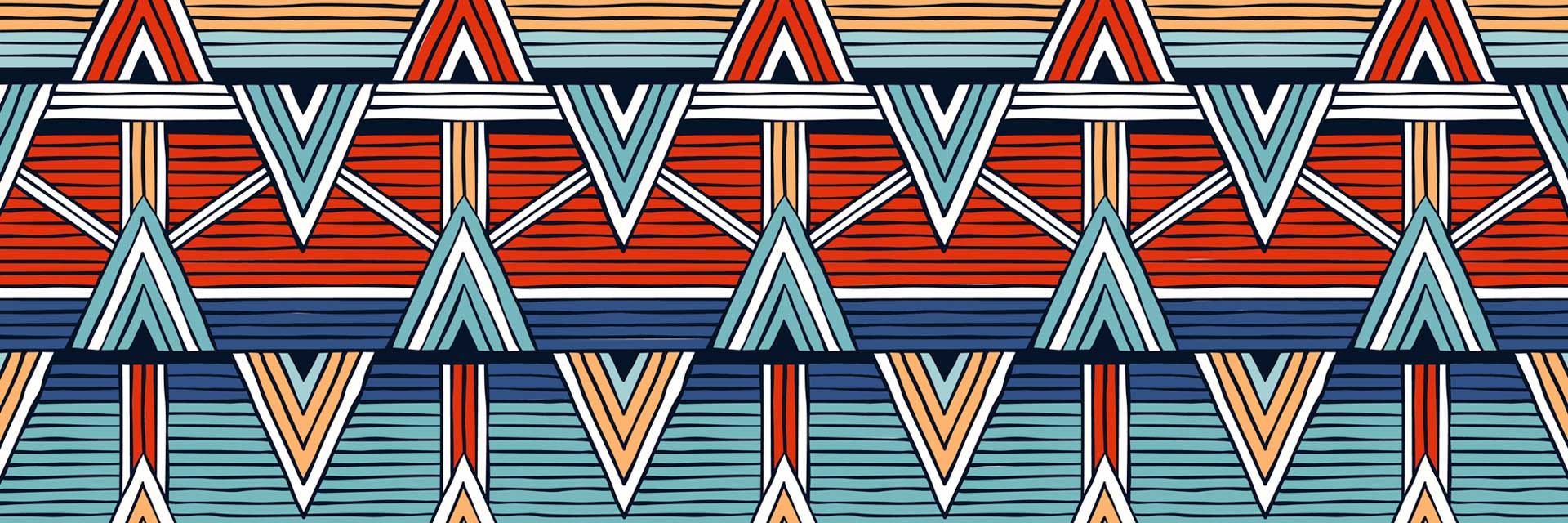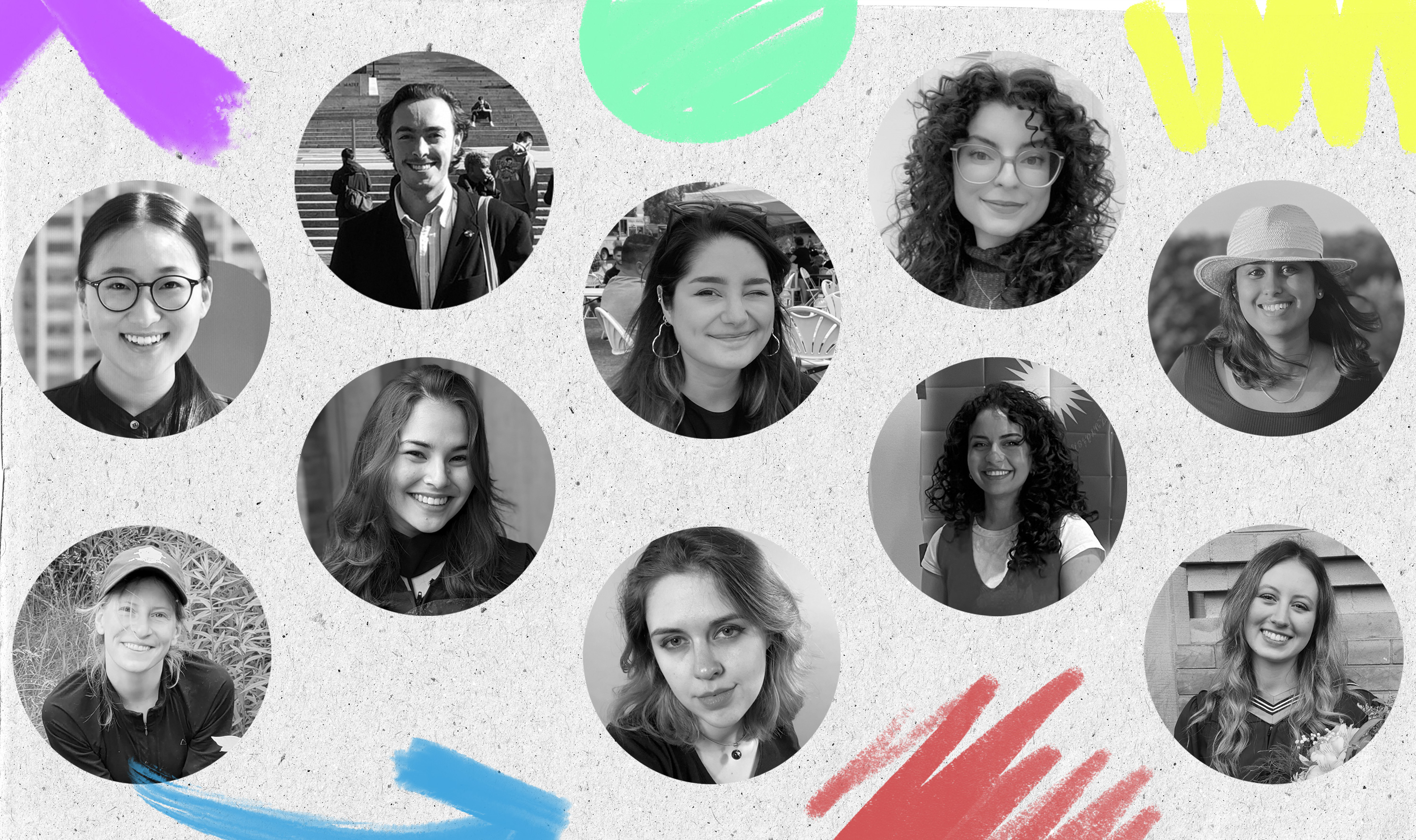
22.06.23 - Q&A: 10 recent grads share memories, favourite courses and tips for new students
As the 2022/2023 academic year closes, we asked 10 recent graduates to reflect on their time at the Daniels Faculty. From courses that changed the way they think about their field to the advice they’d share with new students and what the future holds, their responses were incisive and insightful. Take a look at what they had to say.

Angela Yue Gou (she/her)
Program: Master of Architecture
Hometown: Lanzhou, China
Were you involved with any clubs or organizations at Daniels?
I have been involved with GALDSU for the past three years and am lucky to have had the chance to serve as president in my final year of studies. Being involved with the school community has been one of the most memorable and enriching experiences of my life.
Did you have a favourite project and/or course?
From designing the Mohawk Cultural Centre for ARC1012 (Design Studio II) led by Professor Adrian Phiffer to the House for Piranesi: Drawing as Thesis led by Professor John Shiner, these courses, profs and classmates that I have met have inspired and encouraged me to push my boundaries of how to think about design.
What community-based or international experience did you acquire?
I have been able to be part of the Little Jamaica Outreach program—an Engage Design Build Project in collaboration with Daniels and high school students from the Toronto District School Board—led by Professor Michael Piper and Otto Ojo.
We worked with students through various design and construction workshops, tours and events with stakeholders in their local community to help foster design interest and help them create an end of year showcase. It was very inspiring to see the future generation engage with design and explore its career possibilities.
Any tips for current or future students?
Be proactive and be open to new ideas, perspectives and information. Join clubs that you are interested in and be involved with the school community, as you will meet and learn from so many people through these activities. Don’t be afraid to reach out for support and support those around you as the journey is much more enjoyable taken with others. Most importantly, enjoy and have fun with your time at Daniels!
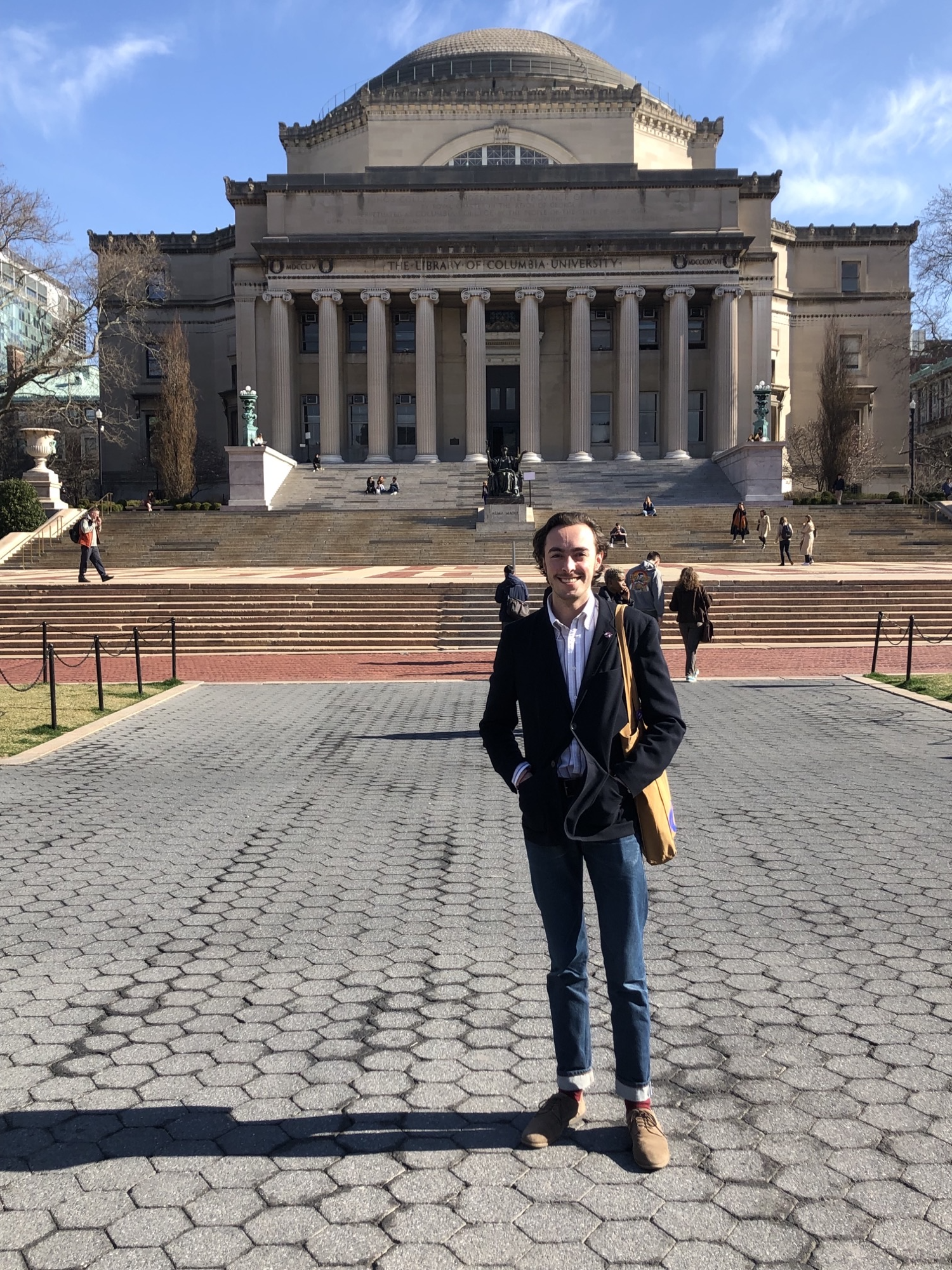
Callum Gauthier (he/him)
Program: Bachelor of Arts in Architectural Studies
History and Theory Specialist stream
Hometown: Merrickville, Ontario
What is your favourite memory of the Daniels Faculty?
I loved working in the studio with friends and peers at crunch times throughout my degree. Though I was more often writing than working on models and drawings, it was great to be in a space that was so social and supportive—and where I could bug my friends in the Design stream for Photoshop help when I was making something visual. Our Faculty studies the importance of spaces and places, so it was great to experience a school culture so meaningfully tied to its spaces.
Did you have a favourite project and/or course?
Architecture and Media (ARC353), taught by Mary Lou Lobsinger, was an incredible course that offered challenging and enriching ways of thinking about architecture. I found the short writing assignments, in response to course readings, were very helpful in developing my writing: a skill that everyone in the disciplines of architecture and design—not just historians and critics—should constantly be working on.
What are some of your future plans?
I’ll be starting a master's degree in Critical, Curatorial and Conceptual Practices at Columbia University’s GSAPP in September. I’m very excited to continue my development as an architectural researcher, and maybe work in exhibition or publication during and after that degree. I think soon after that I may do a Ph.D. in Architectural History, but I’ll have to see where my research takes me.
Any tips for current or future students?
Don’t be afraid to explore different types of courses and broaden your horizons, especially in the early years of undergrad. Bachelor’s degrees are a great time to develop your critical thinking, communication and values; ideally, this should be as much, if not more, of a focus than developing specific skills for the professional world. Having a broad knowledge base and keen cultural awareness will make you a better designer, artist or architect in the long run, and better candidates for graduate programs.
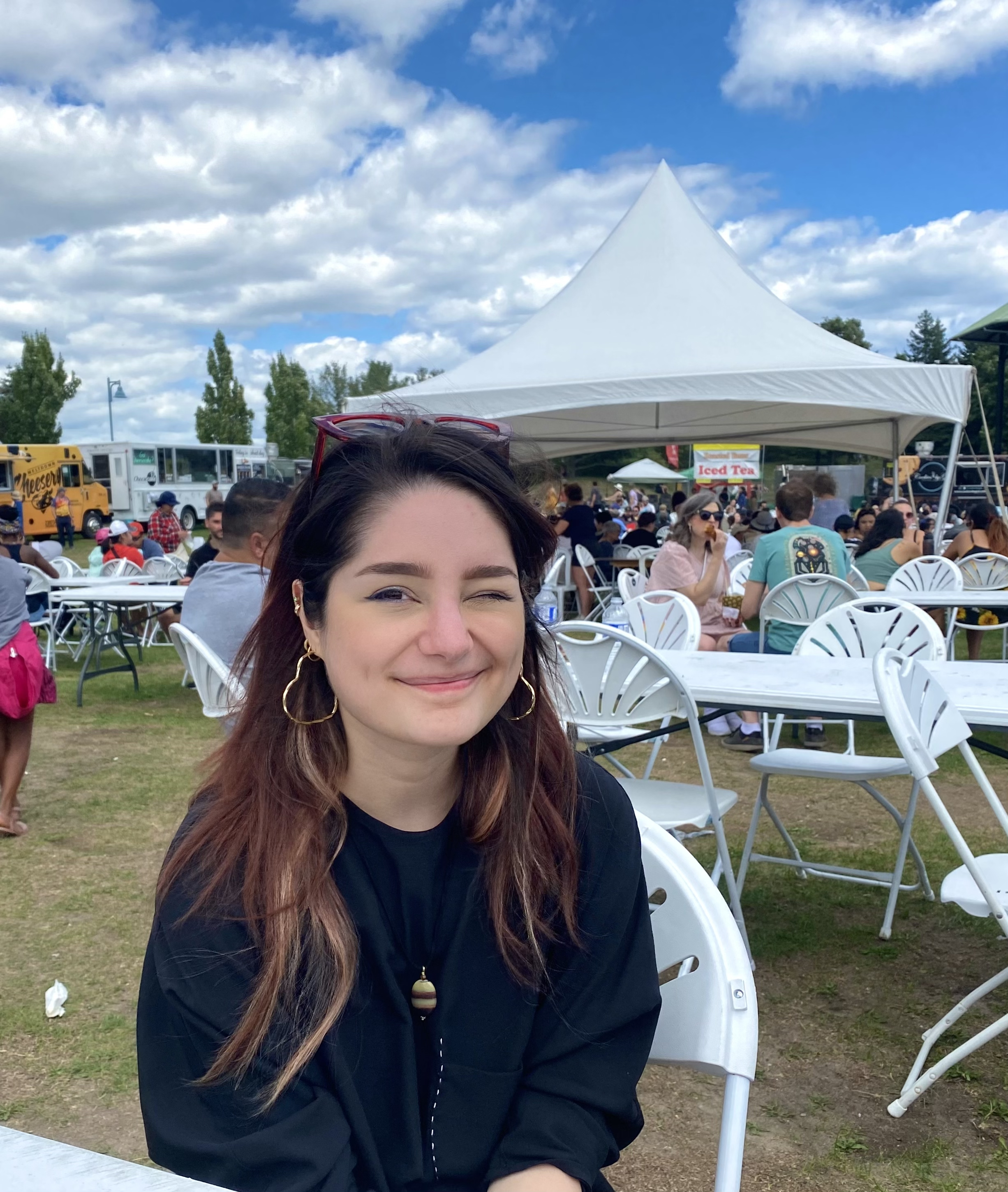
Nazanin Naserian (she/her)
Program: Bachelor of Arts in Visual Studies
Hometown: Tehran, Iran; Toronto, Ontario
Did you have a favourite project and/or course?
My favourite classes were those that challenged me while also allowing me to experiment with new mediums and reimagine new ways of interpreting the world around me. Contemporary Printing (VIS209) in particular gave me a renewed appreciation for printmaking and how, in collaboration with textiles, it can be a way to link past and present experiences in a process-oriented and tactile way.
What are some of your future plans?
My future plans include finding a place in a community where I can work with others to realize a collective artistic vision. I can’t imagine a future where I’m not a creative and don’t get to witness others’ artistic processes. Daniels has taught me that, despite my introverted nature, I find great joy and fulfillment in working together with others to create something bigger than one individual could.
Any tips for current or future students?
Even though it’s easier said than done, try to enjoy the process as much as the final product/vision. Your process does not always have to consist of working on your individual project without breaks; it can also include connecting with others in their processes and any difficulties they may be experiencing. In other words, your friends and classmates are a part of your journey and growth as much as you are!

Samantha Miotto (she/her)
Program: Master of Landscape Architecture
Hometown: Toronto, Ontario
Were you involved with any clubs or organizations at Daniels?
I was part of the mentorship program during my first year and I highly recommend it. The program was a great way to get to know each other, upper-year classmates, and learn from their experiences.
Did you have a favourite project and/or course?
Design Studio II was a favourite for so many reasons. The theme focused on Indigenous culture and knowledge, and taught us to navigate the ever-present relationship between culture and landscape. The process involved a lot of unlearning and relearning to see the world through a non-Western lens, understanding reciprocal relationships between people and plants, and curating meaningful, purposeful material and plant palettes. I feel like this studio truly taught me to see the world through a different lens and its teachings resonate with me still to this day.
What community-based or international experience did you acquire?
In my third year at Daniels, I had the opportunity to travel to Vietnam through my Option Studio. It was a great way to learn about landscape practices around the world, especially regarding global issues such as coastal flooding and stormwater management. The studio was driven by community-based solutions and engagement with local residents while in Vietnam. I feel like the studio fostered community-led growth, which is crucial if we want to design landscapes that last for generations.
Any tips for current or future students?
Enjoy the experience and soak it all in! Three years will fly by—you will grow so much during this short but memorable chapter. Find people you enjoy collaborating with, and really lean into the sense of community that the studio culture fosters. Work together and build each other up and you will develop friendships that will last a lifetime.

Anusha Prakash (she/her)
Program: Master of Urban Design
Hometown: Bengaluru, India
What is your favourite memory of the Daniels Faculty?
The MUD Program offered many exciting experiences as we had the opportunity to explore various locations, ranging from Toronto to as far as Yukon. Along the way, I formed strong connections with my cohort, and what started as mere teammates evolved into deep friendships. The collaborative nature of the program allowed us to learn from each other, and I truly appreciate the invaluable guidance provided by the Daniels faculty.
What community-based or international experience did you acquire?
I had the opportunity to engage in a community-based experience through volunteering at the Climate Solution Research Workshop at ChocoSol. This experience allowed me to gain a deeper understanding of Canadian climates and how garden roofs can contribute to sustainable solutions.
What are some of your future plans?
Urban Design has equipped me with a comprehensive knowledge base, enabling me to approach projects with a holistic perspective. I am keen on exploring an intricate relationship between architecture, urban development and the social fabric of communities. I aim to contribute to the creation of sustainable and inclusive urban environments that promote well-being and enhance the quality of life for residents.
Whether it's through working in a design firm, collaborating with urban planning organizations, or pursuing research opportunities, I am eager to apply my skills and contribute to the field of urban design in a meaningful way.
Any tips for current or future students?
I would recommend prioritizing a good work-life balance by taking frequent breaks between assignments. Additionally, I recommend managing your time effectively by completing the majority of your design work a week before the deadline. Furthermore, don’t hesitate to explore various elective courses that align with your interests and broaden your skill set. Lastly, networking is crucial. Take advantage of opportunities to connect with professionals in your field and build meaningful relationships that can benefit your future career.
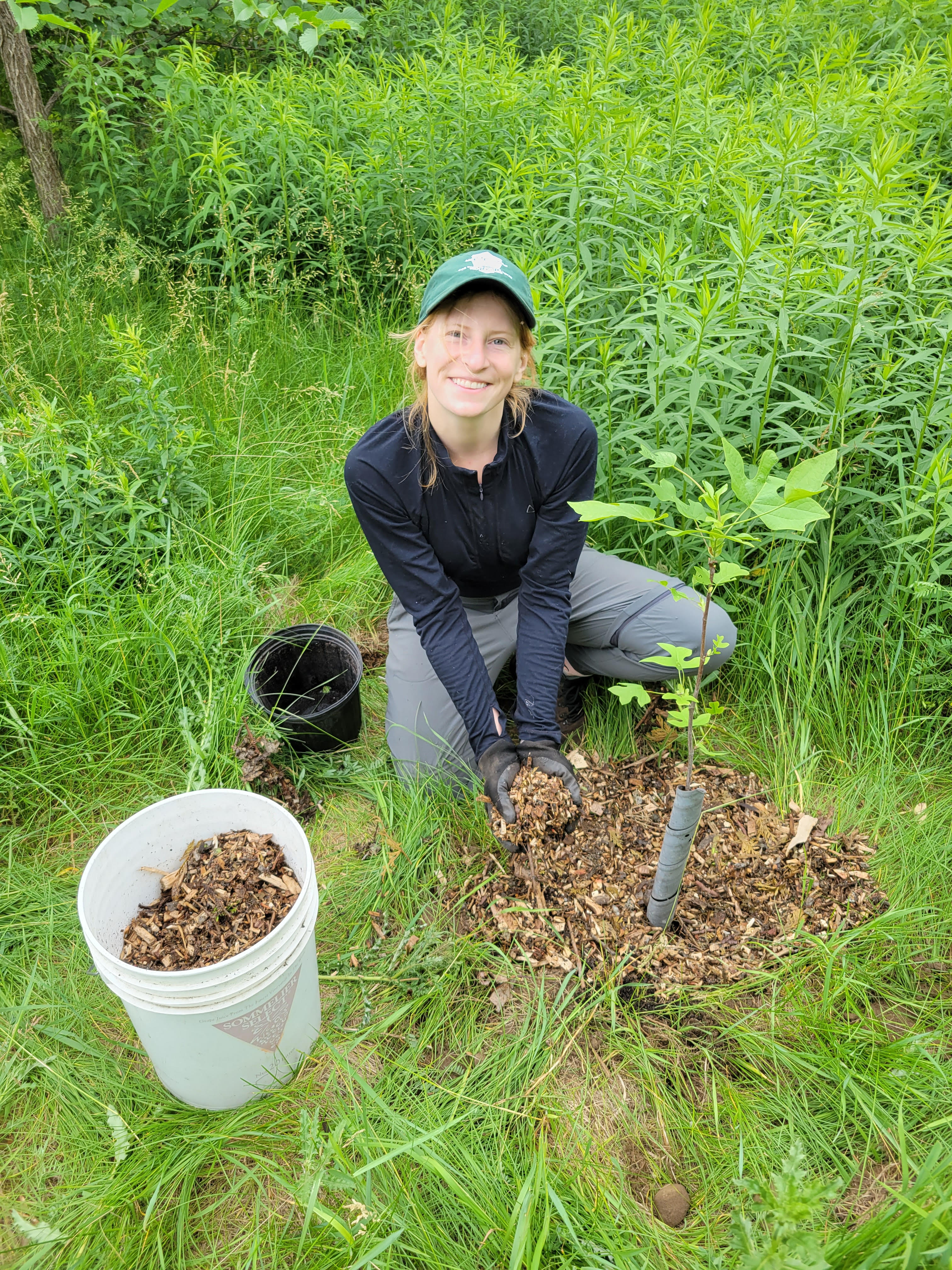
Aileen Duncan (she/her)
Program: Master of Forest Conservation
Specialization in Environmental Studies
Hometown: Ottawa, Ontario
What is your favourite memory of the Daniels Faculty?
I really enjoyed the campus tree walks led by alumni and some of our teaching assistants. It was a fantastic way to learn about biodiversity without going very far. The St. George campus has a great variety of trees that represent several forest types in Canada.
Did you have a favourite project and/or course?
So hard to choose! I really enjoyed the field courses. The Masters of Forest Conservation program is very hands-on, and I think this is one of its great strengths. For our in-class activities, I really enjoyed learning how to use Geographic Information Systems (ArcGIS). Spatial data is incredibly valuable for forestry, and learning this software inspired me to do my Capstone research project on mapping access to green space in Ottawa.
What are some of your future plans?
I am currently working as a policy analyst with the Canadian Forest Service, which is part of Natural Resources Canada. In February, I was granted a provisional license to practice forestry as a Registered Professional Forester in Training. I am particularly interested in urban forestry and sustainable forest management, and I have also discovered how much I enjoy learning how best to look after the health of individual trees. To this end, I am gaining work experience and studying to take the ISA-Arborist certification exam.
Any tips for current or future students?
Even if you are busy, spend the time to look for and apply to scholarships. It can really help finance your studies, and it may open you up to new networks or experiences. Also, don’t be afraid to take a break from school, but also know that it is there for you when you are ready to come back. I worked for eight years after my Bachelor’s, and that time was essential for me to understand what I wanted to be doing and what education I needed to do that. I was nervous about going back to school in my early 30s, but trusting my decisions and doing a graduate degree was absolutely worth it.
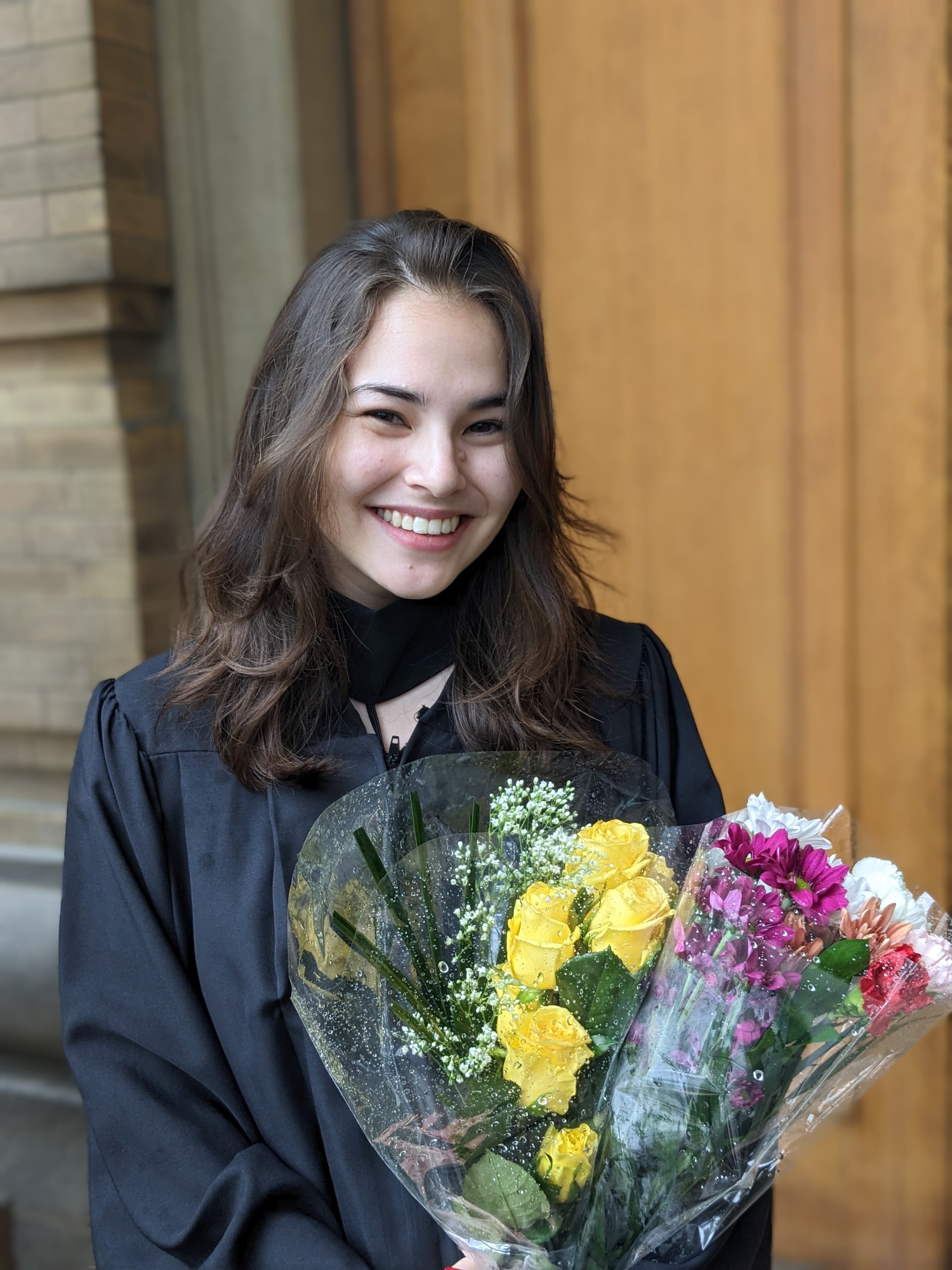
Julie Seeger (she/her)
Program: Bachelor of Arts in Architectural Studies
Design Specialist stream
Minor in Buddhism Mental Health and Psychology
Hometown: Toronto, Ontario
What is your favourite memory of the Daniels Faculty?
I completed my undergraduate design thesis in April, titled “This is How We Heal.” It investigated how an attitude of care through design can transform the Koffler Centre into a space where students can embody a sense of belonging. I wrestled with what the final design should look like for months, had countless iterations, and had honest conversations about mental health. My final presentation was the cumulation of my interests and experiences I had undergone throughout my degree, and it was very special to share it.
What community-based or international experience did you acquire?
Mental health has been an increasingly important topic, both on an individual level and on a wider institutional level. In my second year I joined AVSSU, as well as Health and Wellness’ student advocacy team. I took these experiences with me to VUSAC, where I led the Mental Wellness Commission for two years. Through viewing mental health from different perspectives including policy-making, healthcare and institutional culture, it has become clear that this wicked problem requires a collective effort from multiple fronts. My experiences have driven me to continue pursuing how design can begin to solve this problem.
What are some of your future plans?
I am returning to Daniels in the fall to pursue my Master’s of Architecture and I’m really excited to continue exploring the ways design can be used to solve problems surrounding human health.
Any tips for current or future students?
Design becomes much more exciting when it is used to solve problems. I tend to bring my personal experiences into my work, and it has made it much more meaningful for me. As you move through the world, pay attention to the experiences or events that elicit strong reactions from you, and learn how you can use your education to begin to solve them.

Audrey Ammann (she/her)
Program: Bachelor of Arts in Visual Studies
Hometown: Barrington, New Hampshire, USA
What is your favourite memory of the Daniels Faculty?
One of my favourite memories was the Artists' Multiples exchange we did in VIS321. Everyone in the class made 20-something small art pieces for the final assignment that got distributed so that each person went home with one of each. It was so special to carry home a goody bag full of little heartfelt artworks from such a talented bunch. Some were even customized with names and initials, which totally made me cry.
Were you involved with any clubs or organizations at Daniels?
Yes! I was elected as one of the curators of the Daniels Art Directive in my third year, and I was an honorary member of the Applied Architecture and Landscape Design club for my contributions as a lecturer for the Daniels Minecraft Camp.
Did you have a favourite project and/or course?
I can say my favourite project was my site-specific sound-art performance at El Mocambo for VIS340: Advanced Sound Studio. I got to play a field recording that I made of myself dancing along to the Rolling Stone’s Honky Tonk Women from their Live at the El Mocambo album on the house sound system, and then host my critique on stage at the historic venue.
Any tips for current or future students?
Asking for help serves two purposes: It shows you are committed to doing well, and it shows that you are interested in what your professor (or any faculty member) has to offer. Either way, you are squeezing the most out of your university experience and opening doors to new insights and opportunities.
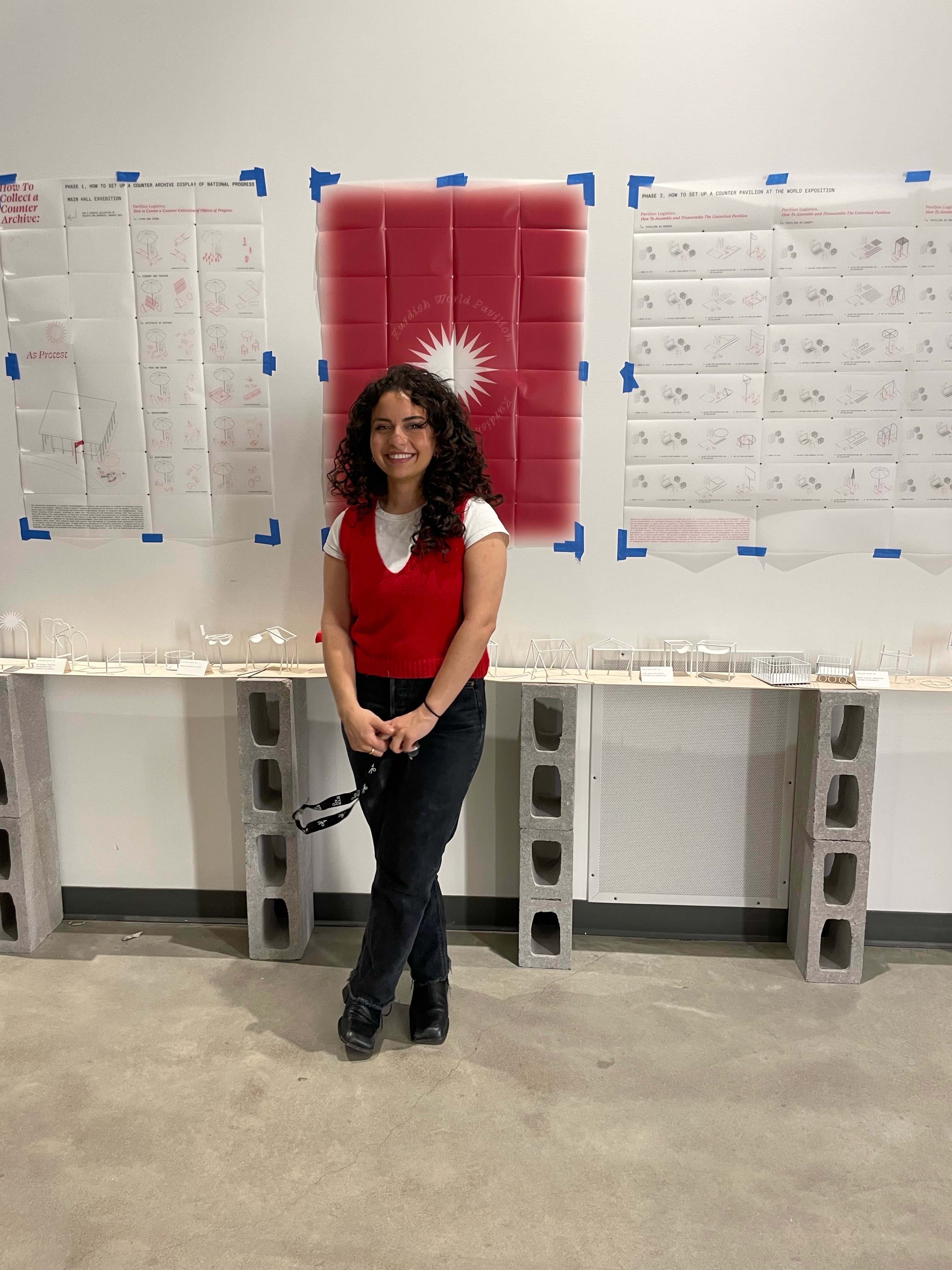
Liane Werdina (she/her)
Program: Master of Architecture
Hometown: Toronto, Ontario
What is your favourite memory of the Daniels Faculty?
Definitely all the amazing connections I made at Daniels. Specifically, the final thesis year was filled with memories with my classmates, peers and professors. The studio culture and camaraderie at Daniels was truly memorable in that last year, as was finishing thesis year by not only presenting my own thesis but attending my colleagues’ thesis presentations. This felt like a great culmination and celebration of years of hard work and was such a rewarding learning experience.
What community-based or international experience did you acquire?
My thesis research was rooted in collecting experiences of diaspora in the Kurdish regions of modern-day Turkey. Being allowed to do research on such an important and sensitive topic allowed me to reach out to and connect with many Kurdish people, architects and designers who were also interested in the research of my thesis and helped to contribute to its development. Being able to use the Daniels Faculty and resources to reach out to communities and work abroad helped ground my work in reality.
What are some of your future plans?
I hope to continue the research I conducted during my time at Daniels, by addressing how design and architecture can be used to expose and represent power relationships in space. My goal is not only to be a good designer and contribute to architecture but to continue to develop methods in which design tools can positively impact and change the way we shape social, cultural and political dynamics.
Currently, I am working with Lukas Pauer in the Vertical Geopolitics Lab, a research-based practice. We are working on a future exhibition that aims to decode and expose relationships between space and power.
Any tips for current or future students?
The program goes by a lot quicker than expected, so take advantage of all the great opportunities available to you at the Daniels Faculty. The studios, specifically thesis, are great opportunities to explore your interests before making your way into the profession of architecture. Some of the best advice I received was to use these as the jumping-off point for discovering where you want to take your career, and to see them as beginnings rather than ends.
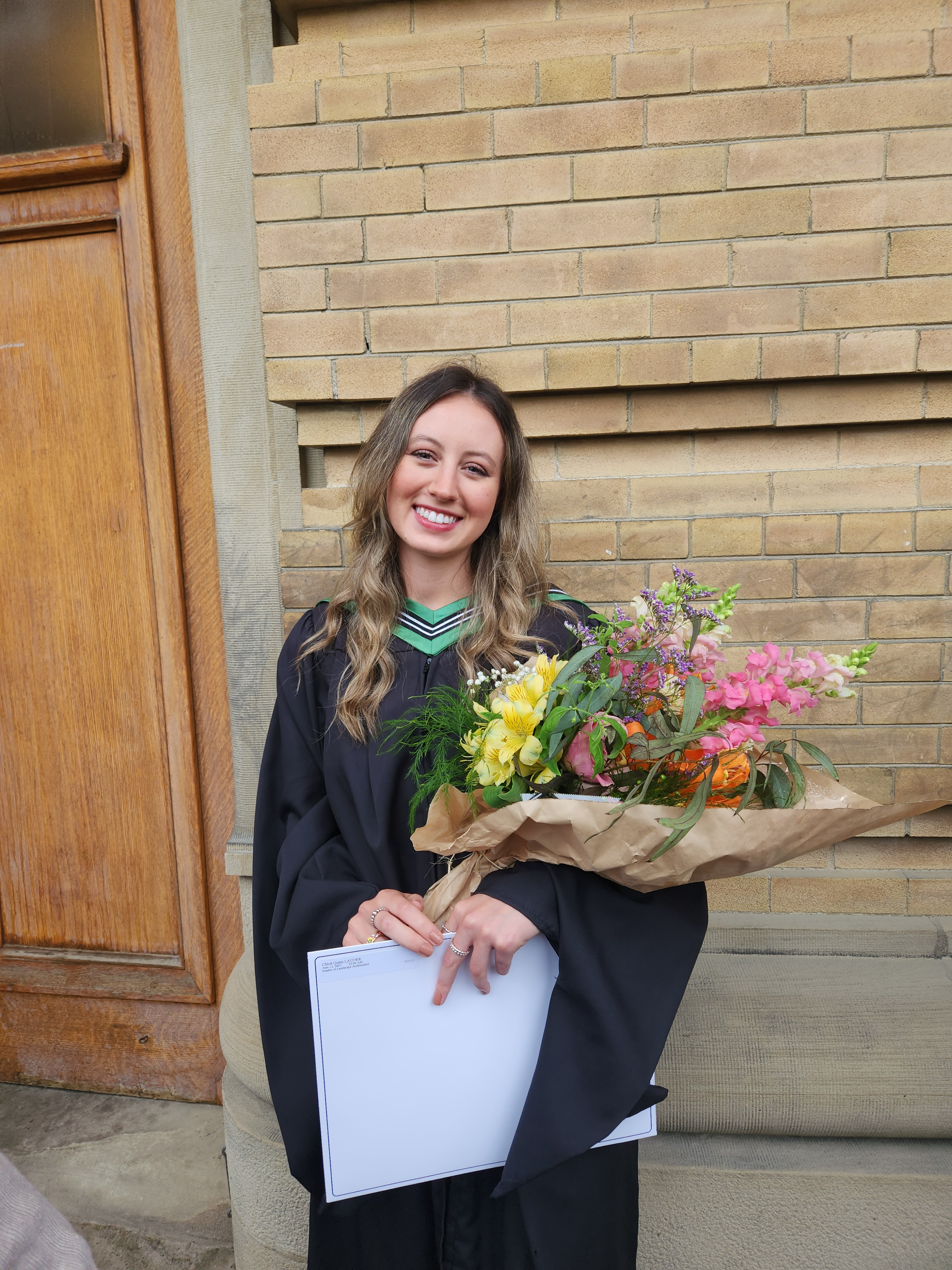
Chloë Quinn Lauder (she/her)
Program: Master of Landscape Architecture
Hometown: Unionville, Ontario
What is your favourite memory of the Daniels Faculty?
Thesis reviews were one of my favourite memories at the Daniels Faculty. It was incredible to see the deeply personal, innovative and beautiful work that my peers presented. It made me feel so proud to be a part of this talented body of students.
Did you have a favourite project and/or course?
My favourite project, titled “Unearthed,” took place in the Integrated Urbanism Studio. I had so much fun working with an amazing team to produce drawings at the urban fabric scale, and investigating the impact that inequitable policy and planning has on landscapes in Toronto.
What community-based or international experience did you acquire?
I visited Ho Chi Minh City, Vietnam during my Option Studio. This was a once-in-a-lifetime experience where I worked with international faculty and students from the University of Architecture Ho Chi Minh City (UAH) to better understand the challenges of climate change, and how culture shapes common spaces.
Any tips for current or future students?
Time flies, so make the most of your experience and remember to put your mental health first. Be bold, try new things, and have fun!


